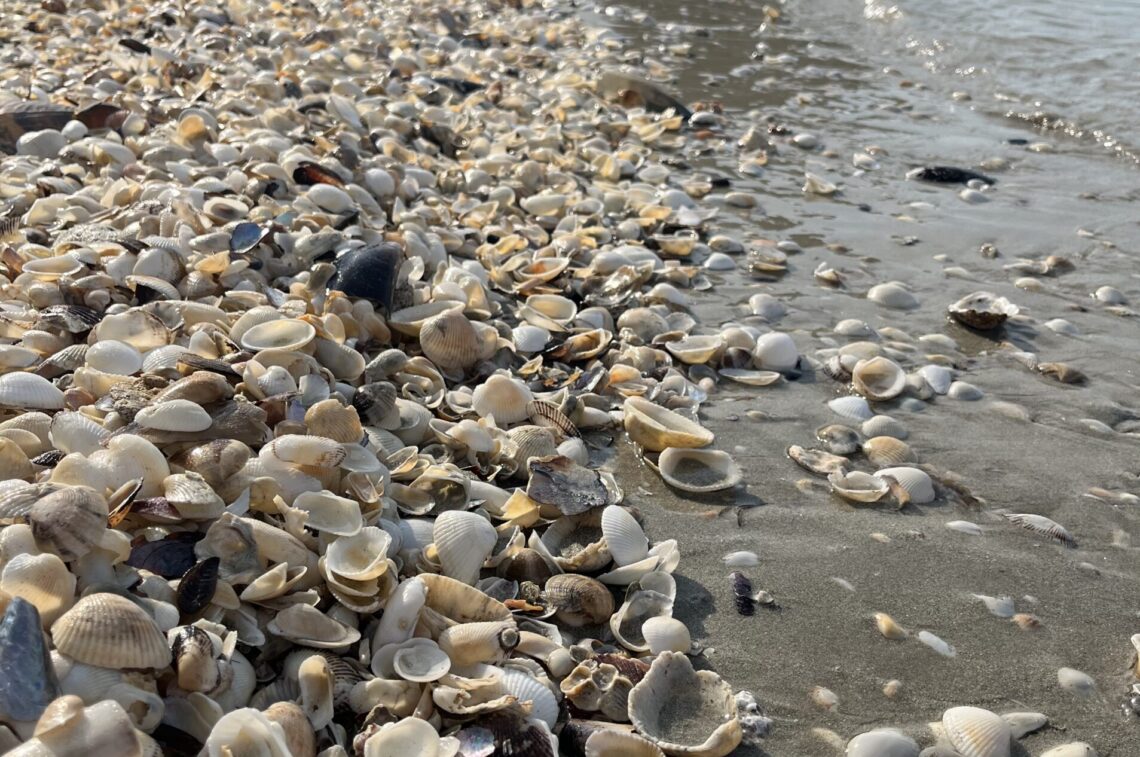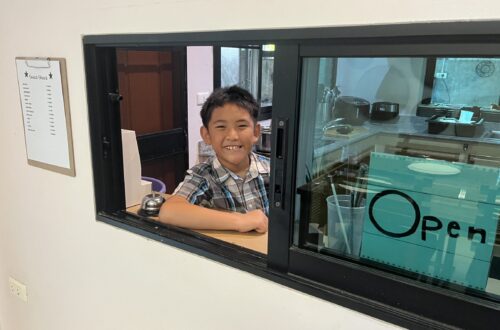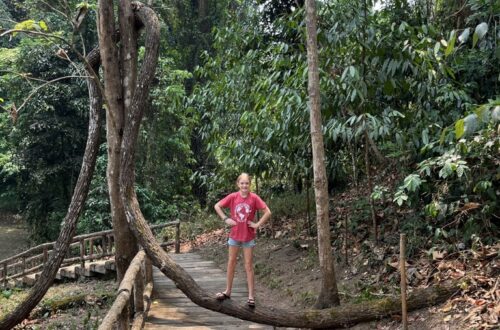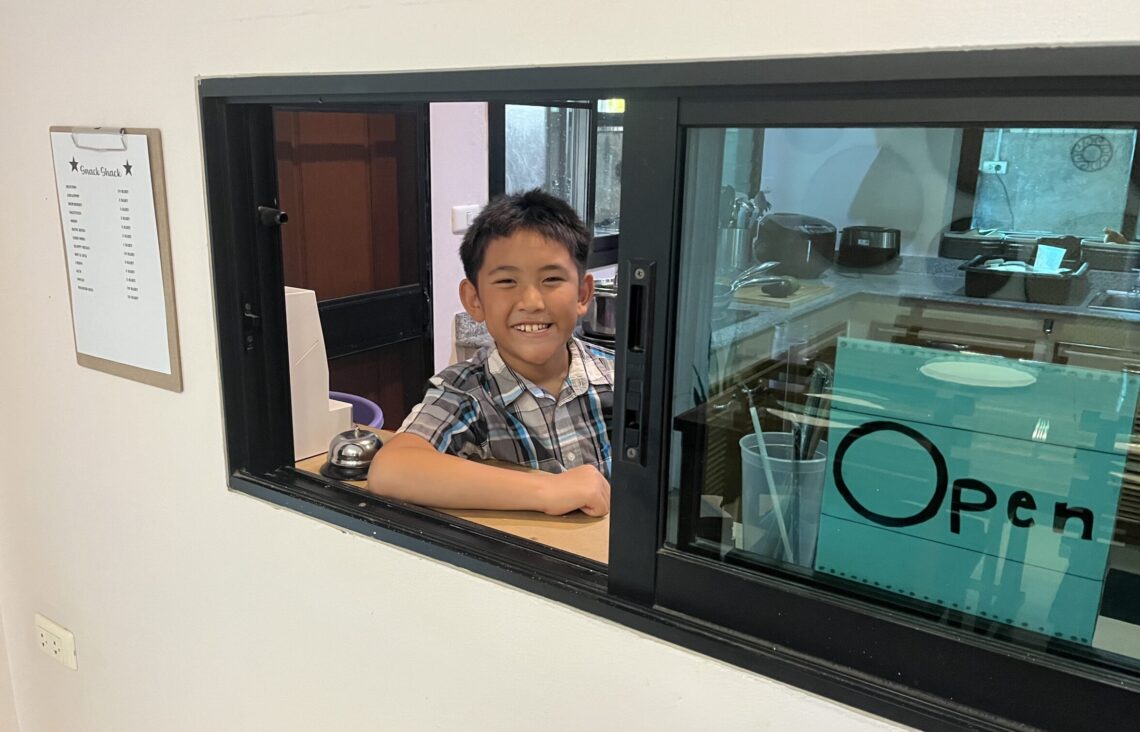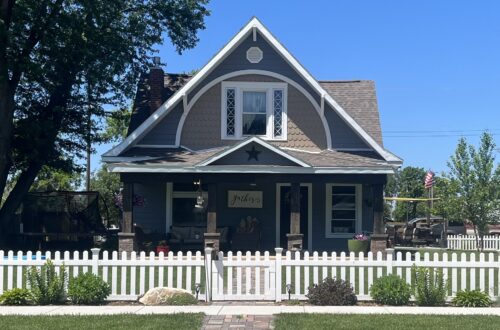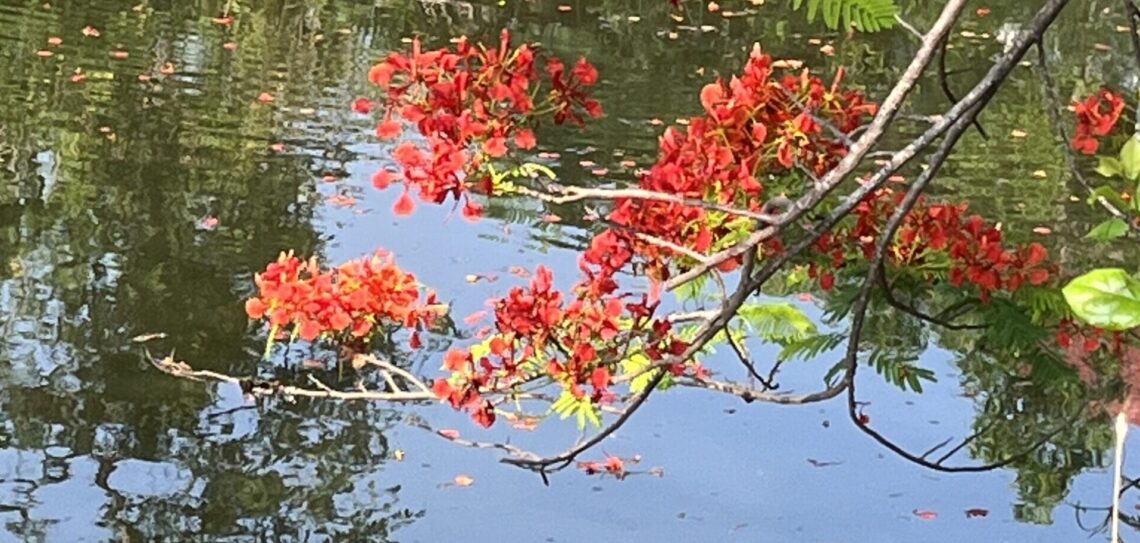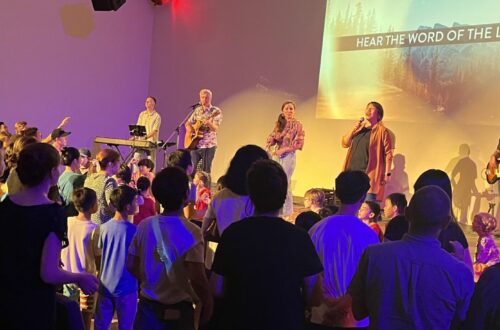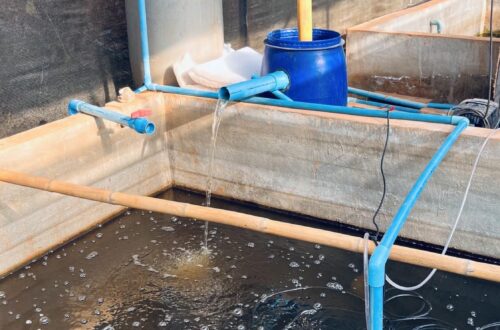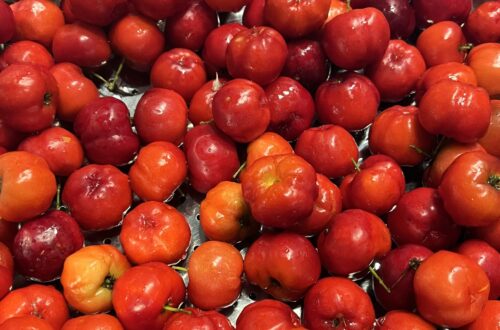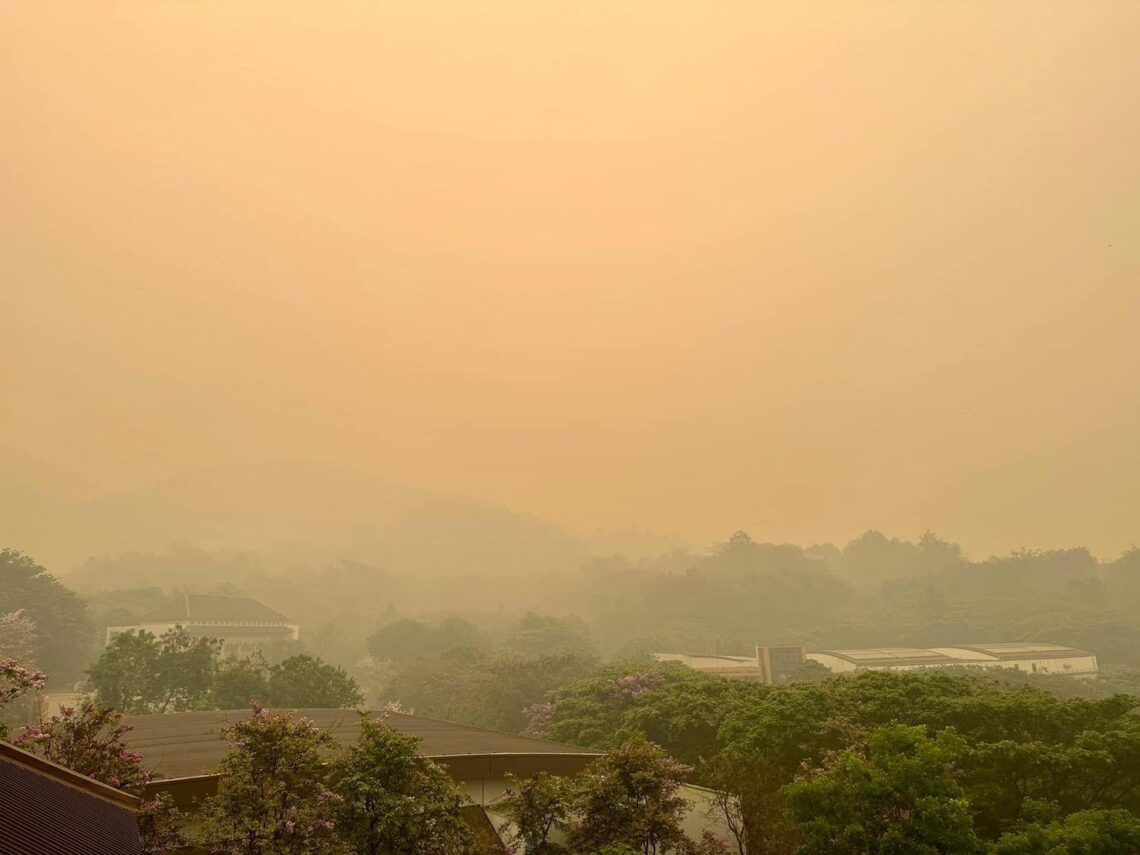-
Get Used To Different
It has been over a month since my last post and a quick scroll down the homepage would say it is my “turn”. But words are coming hard for me. Everything is. Life just feels hard right now, but it is difficult for me to explain just how or why, beyond anecdotal examples of the small daily frustrations I encounter here and there. I think it is because everything is different. Not all bad. Not all good. But very different.
As a homeschooling mother, my main job right now is to re-establish the routine of the homeplace: basically doing the same things I’ve always done in a new place. But it is hard to do the same thing when everything is different. Knocked out of my rhythm, I feel a bit off-balance and even small daily tasks require too much attention and decision. Right now I struggle to think of a single thing I do each day that is the same as it has always been. EVERYTHING is different.
The sounds are different: different birds, different bugs…bigger. Different words and voices and songs.
The smells are different. I hear the rain and open the windows: but can’t find the smell I always knew. A smell I fail to even remember well enough to describe: help me friends…was it grass? soil? With something sweet? I don’t really know how to describe it here either, just different.
The flavors are different. We might find butter, chocolate, avocados: but in your mouth they aren’t familiar. There is a subtle nuance in flavors such that basic comfort foods fail to deliver. I am working to adapt to new staple ingredients, but new ingredients mean new recipes, new utensils, new pans, new methods. For some that might sound fun. For this cook and grocery shopper, I admit it is mostly daunting. Probably because the food is different, my body feels different, too. It is exhausting to have no respite from all that is unfamiliar, even inside myself.
I sit here at my desk a stack of papers and notes next to me. It is printer paper, but a different shape (My PDFs run off the page on the long side and also leave a huge margin on one side along the short side…an annoyance to this recovering perfectionist and her like-minded children doing school on lopsided worksheets). Also, the pens have smaller ballpoints, so my handwriting looks a bit like someone else’s. That is supposed to mean something. Am even I so very different?
I brought the most important pieces of the life we left behind with me: they are different, too. Rod has more confidence and purpose than I have ever seen in him and that changes my role in his life. We moved here with three “littles” and one very tall eighth grader. Now I am the mother of mostly high school and middle schoolers. Even our youngest will be hitting double-digits this month. All these new life phases are bombarding me each day without my permission. So much that is so different.
The kids and I are working on putting together our own synoptic gospel as we study all four gospels together during our school day. As a part of that process we are re-watching The Chosen. If you’ve been following with this amazing show, you might recognize the bumper sticker phrases #LookUp or #ComeAndSee. During Season One, it was #GetUsedToDifferent. That is the part of the story we are in right now. And so I am. We are. We are all getting used to different.
I fear my tone is–once again–desolate, sad, even whiney. That isn’t how I feel.
Sometimes a fog sits heavy around me, yes. Sometimes I feel I’m just spinning my wheels trying to do the same things I’ve always done (cooking, cleaning, and working to develop and find meaningful outlets for my children’s amazingness)…even though that same thing I’ve always done is different here, harder.
Still we plug away and find new blessings when we look for them. I’m certainly not doing it perfectly, but God loves me anyway. When I can see clearly, I am overwhelmed with gratitude.
God is too good,
his world too wonderful,
his work too astounding
to stay in the fog when the sun is shining.
Here are a few things that have me feeling blessed beyond measure recently:
#1) Have you ever heard a seashell orchestra in real life? The way the waves catch the shells and then send them clinking together on the way back out is such a uniquely beautiful sound. I’d never heard it before, and it took my breath away. The whole earth sings praise. (The video doesn’t do it justice, but we tried…)
#2) Baht are PERFECT for illustrating borrowing. Such a fun blessing as we wrapped up 3rd grade math and reviewed all the sticking points!


#3) I caught these two spending quality time making music together. I was able to sneak the phone around the corner just in time to catch this. They are both shy to share these talents, but I pray they do this together more and more!
#4) Isn’t this symbiosis of life so pretty?
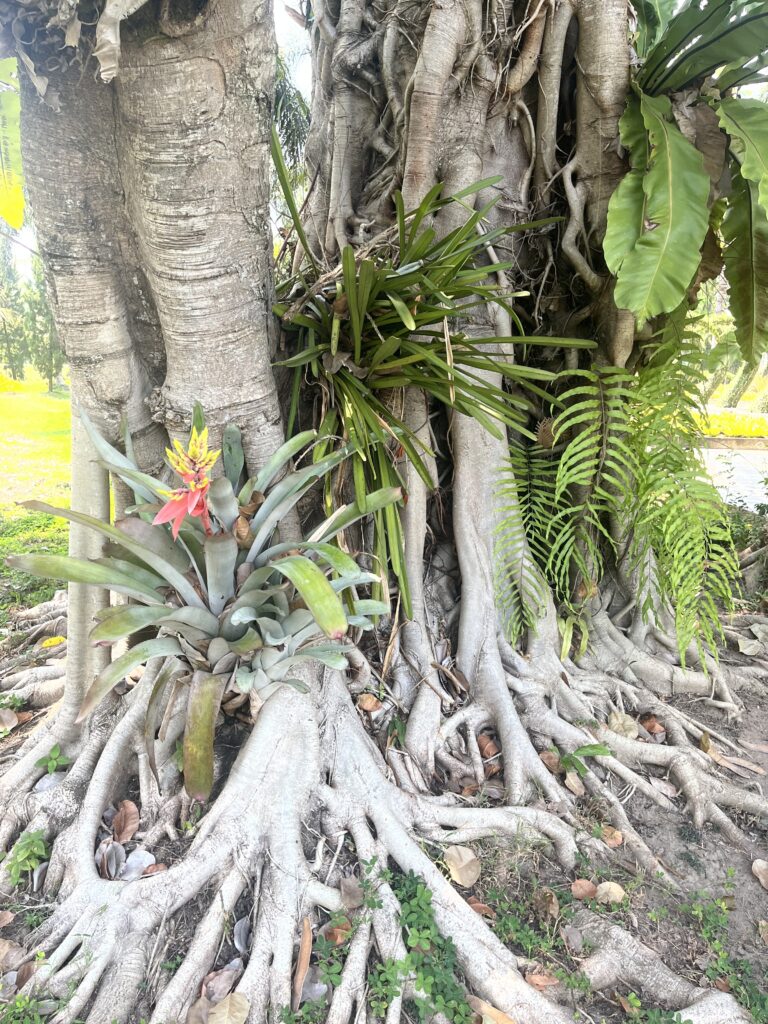
#5) These two American girls brought up the rear in the three legged sack race.

-
The Snack Shack
Our kitchen has the coolest window. It slides open and it slides shut. On one side of the window, it is the kitchen and on the other side, it is the dining room. I came up with the coolest idea: what if I served snacks from the kitchen to people in the dining room?

From there, it became “The Snack Shack.” First my sister, Selah, bought a cash register. Then my dad put shelves in so that we could pass things out from there. Now I sell candy, and Oreos, and Beng Bengs (which are candy bars that are like rice krispies with chocolate on them). And now I am partnered in association with a business called “Keim Café.” Selah can tell you about that.
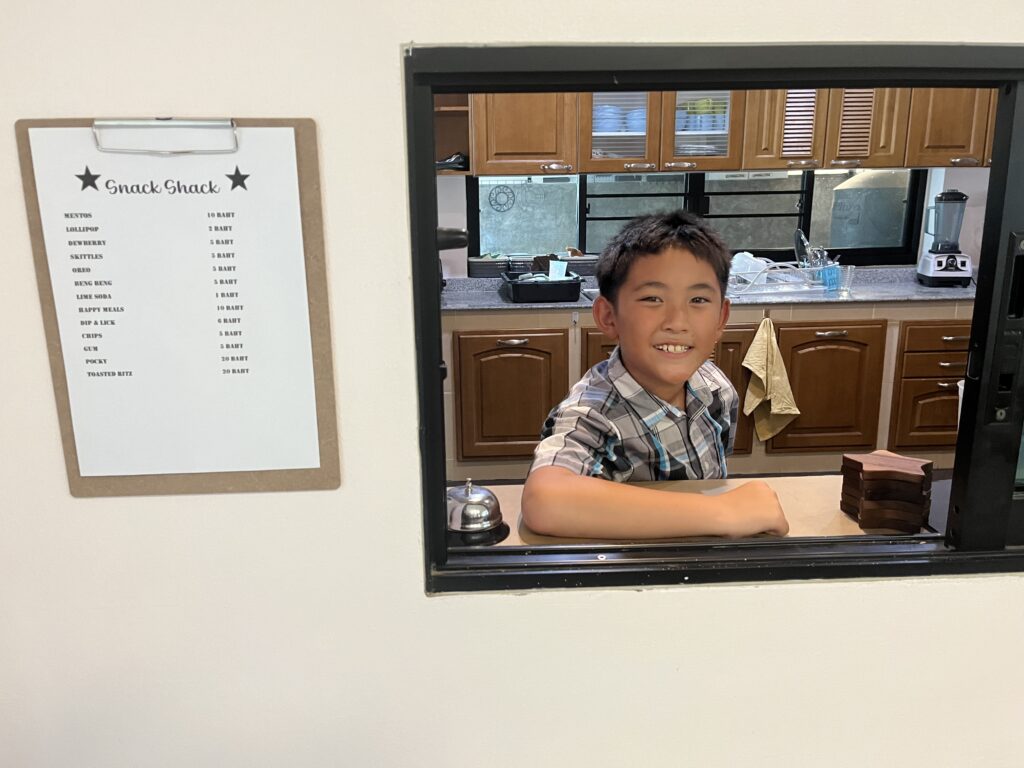
For a couple of days, during math time for school, mom and I figured out how much everything should cost. We took the total price for a box, counted how many things were in the box, and then divided up the price. In my head I could estimate how much each thing cost. We have 5 baht treats and 10 baht treats. That way people could pay for it with the money we get each week for snacks.
·
-
Bloom where you are planted.
There is a tree growing in the empty lot next to the home we are renting, and I love it. It has more flowers than leaves, and the color is striking against the blue sky.
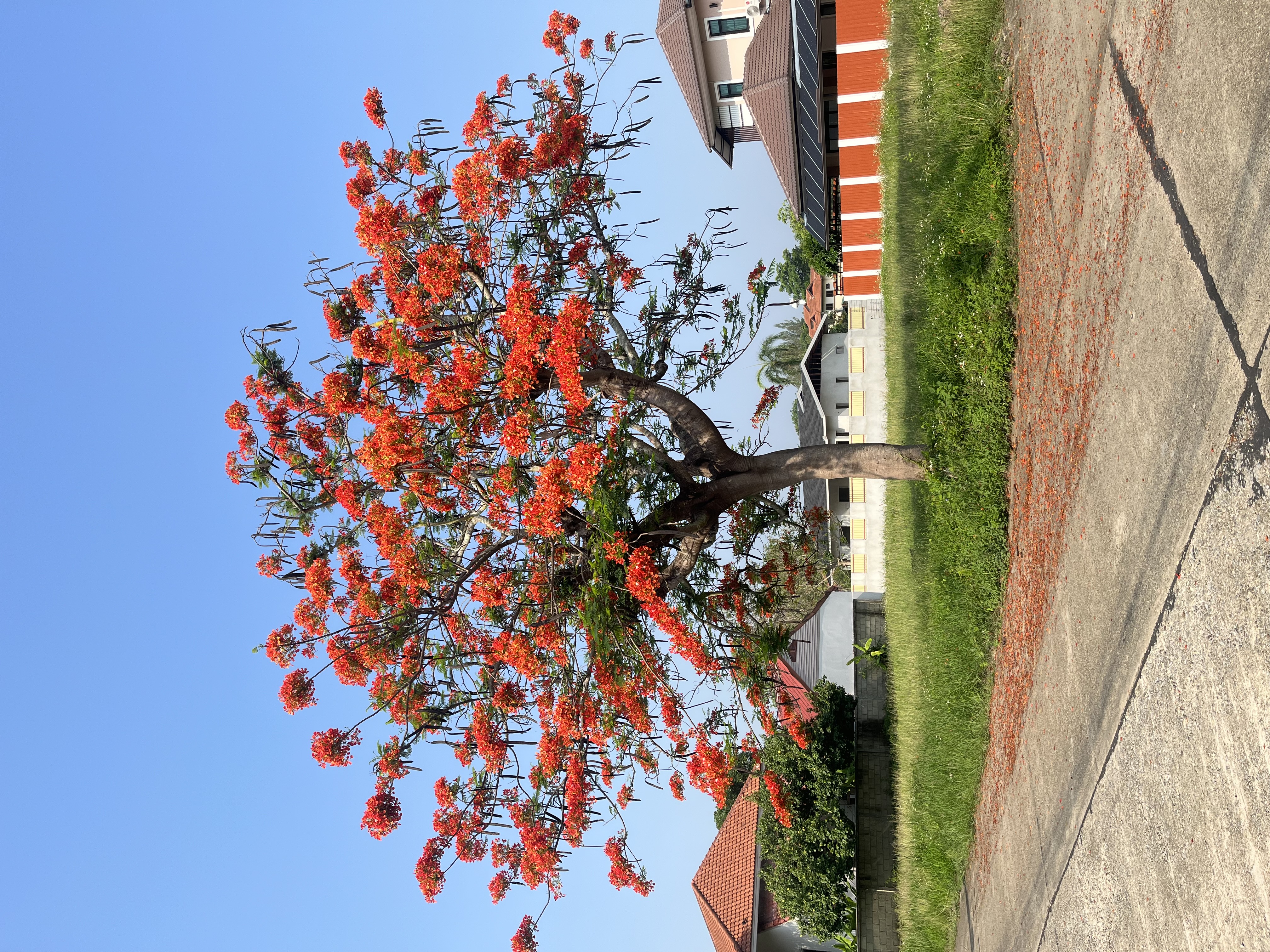
Trees like this one are growing all over our Muubaan (neighborhood), standing here and there to bless me each day on my morning “walkabout”. Last month, there were yellow trees in bloom. With the onset of rain and the appearance of blue skies, these orange ones now shine.
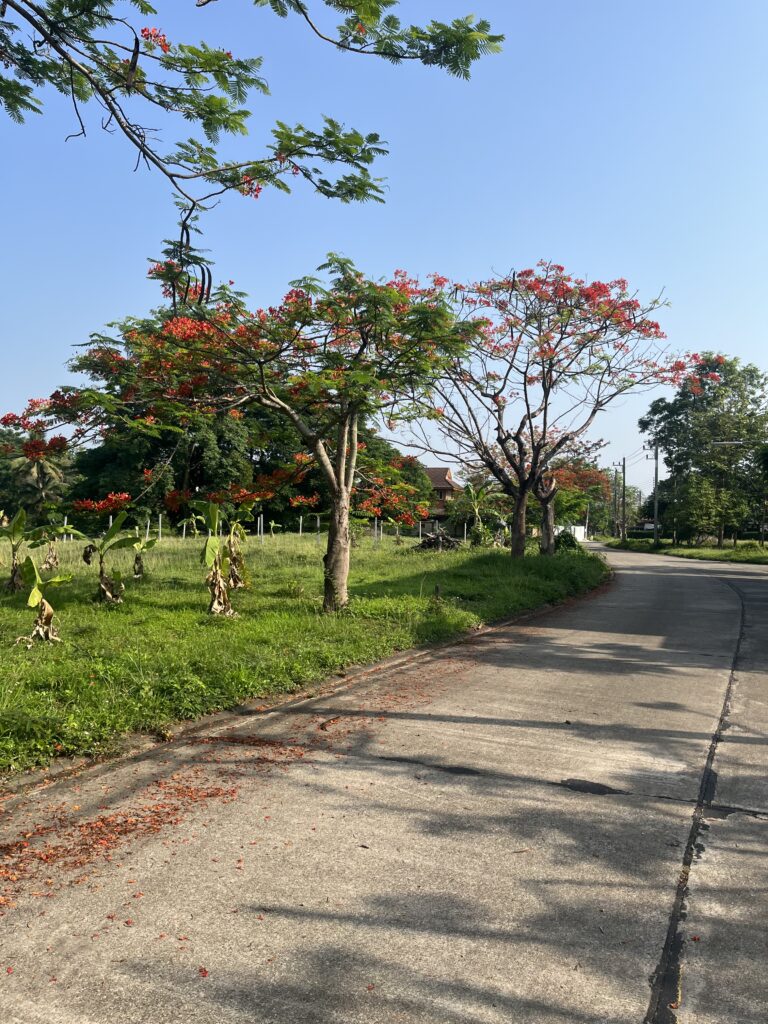
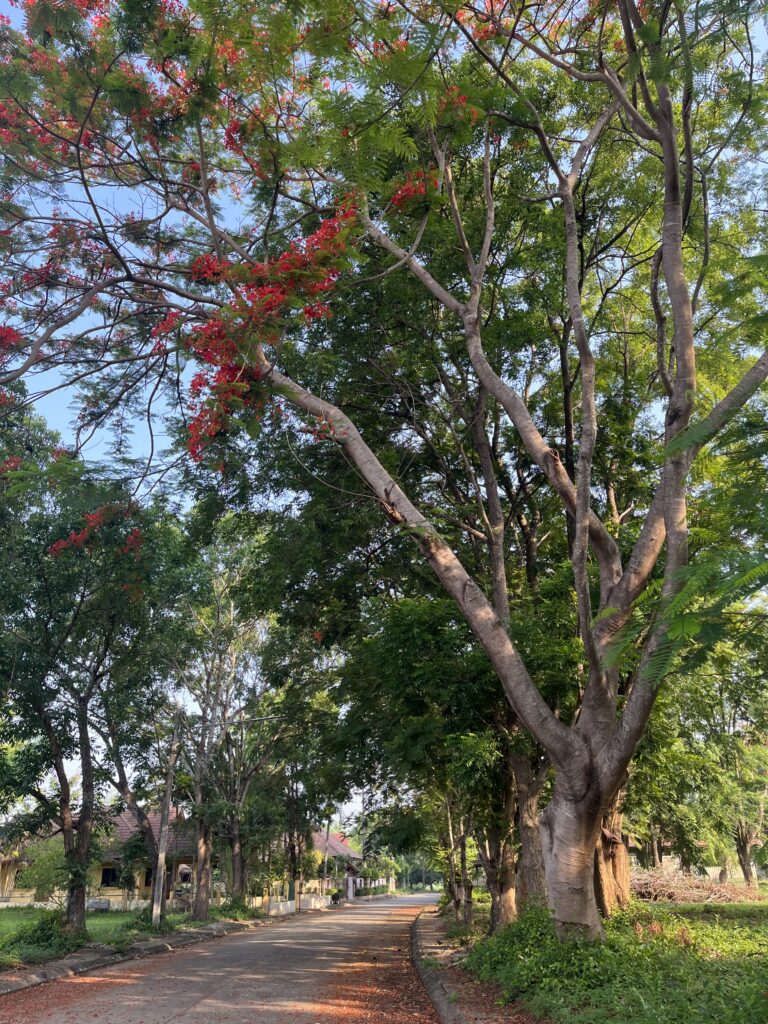
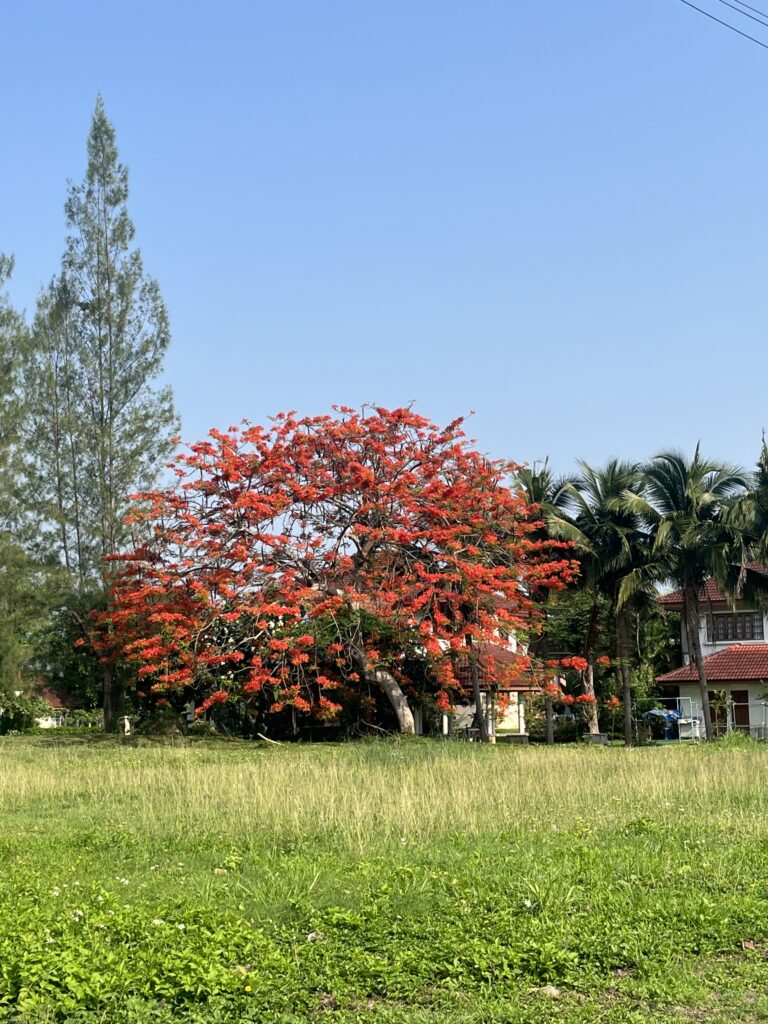
I have always been drawn to the simplistic beauty of the adage “Bloom where you are planted.” I like the idea of a master gardener placing each seedling right where He knows it will do best. I like that a tree’s job is simply to put down roots and keep reaching up. I like that the tree reaches for food, sunlight, and water but can do little more in the way of providing for itself.
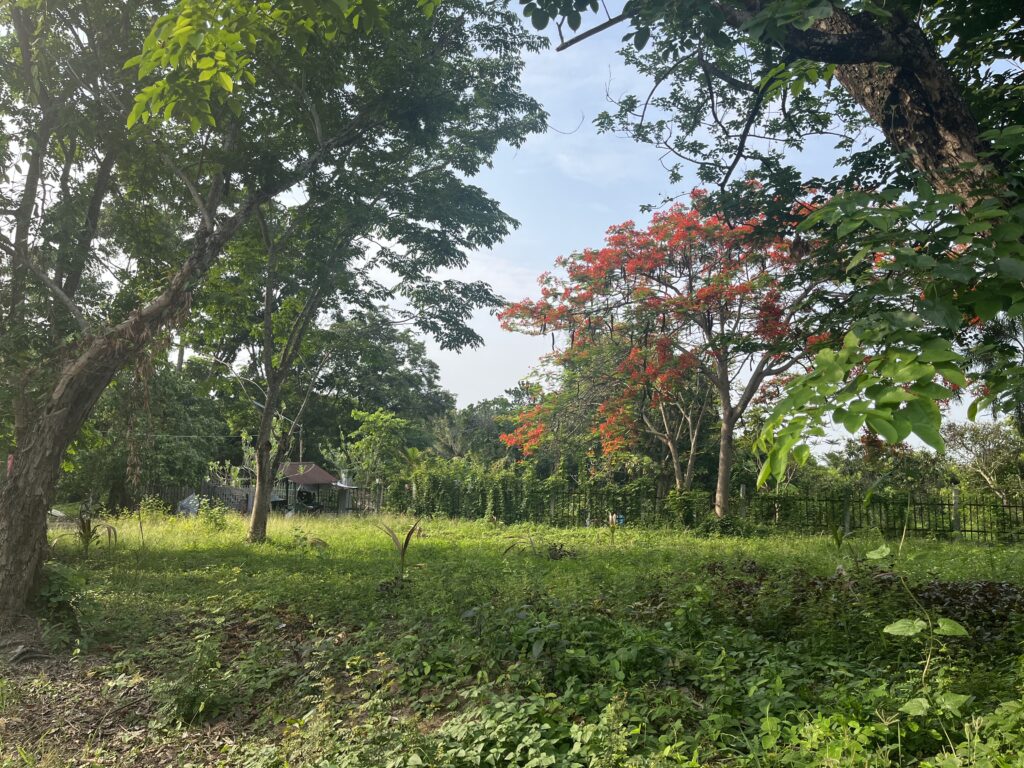
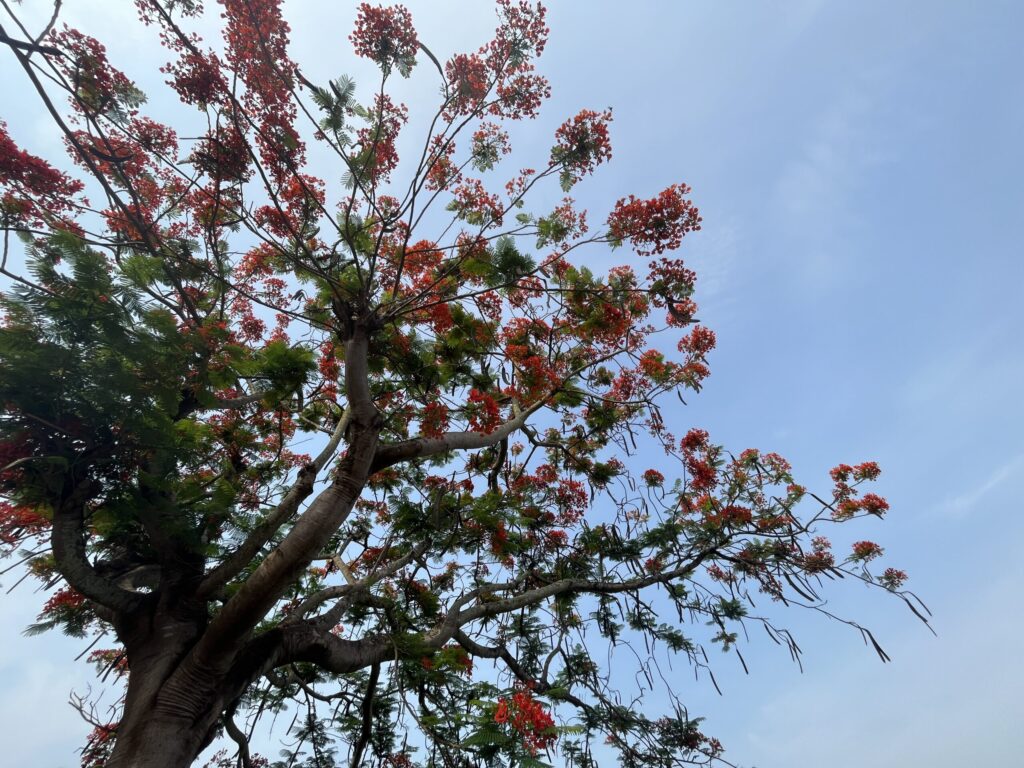
When Rod and I bought our first home, one of the things I remember stood out to me about the older neighborhood we moved into (as opposed to the newer subdivisions we visited), was the trees: they stood tall above the homes and shaded the roadways.
When we moved to the ranch, I fell in love with the ancient tree in the yard…
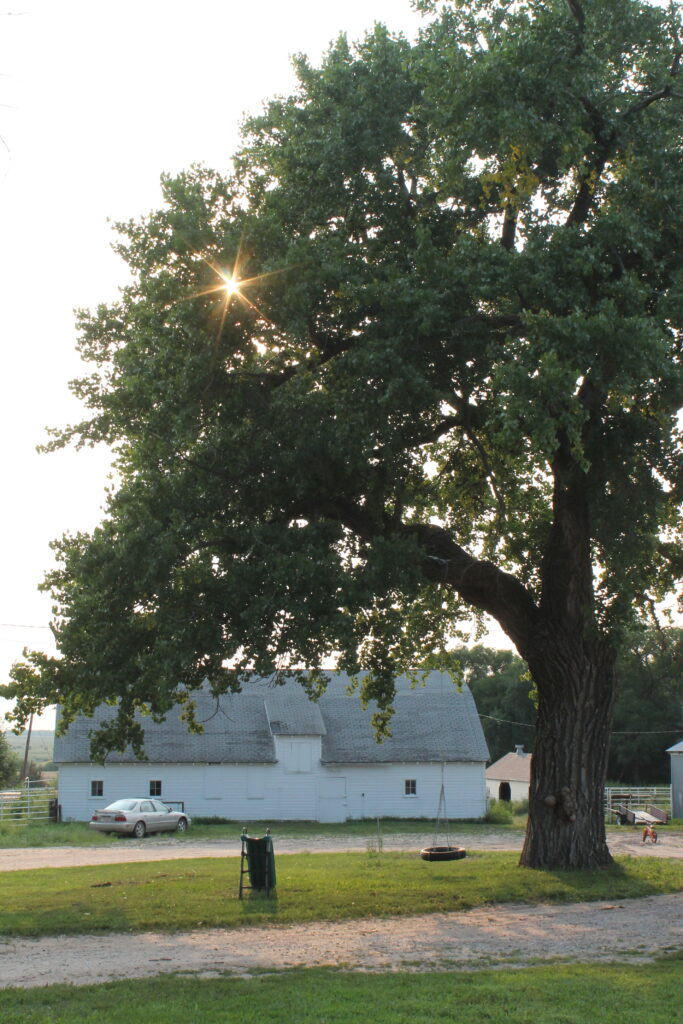
…the one with the baby raccoons and the tire swing.


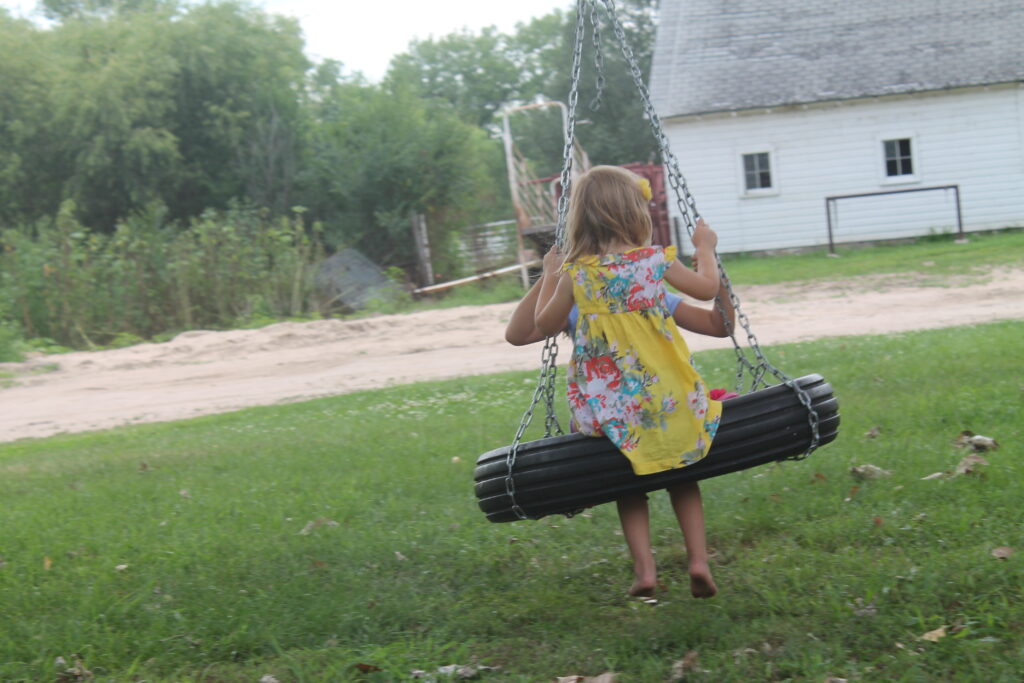
When we moved to town, there was an old tree to greet us there, too. This one blessing us with seed pod helicopters in lieu of the cotton that “snowed” each summer at the ranch. It sheltered a fairy garden and held the tree fort that became the water slide.
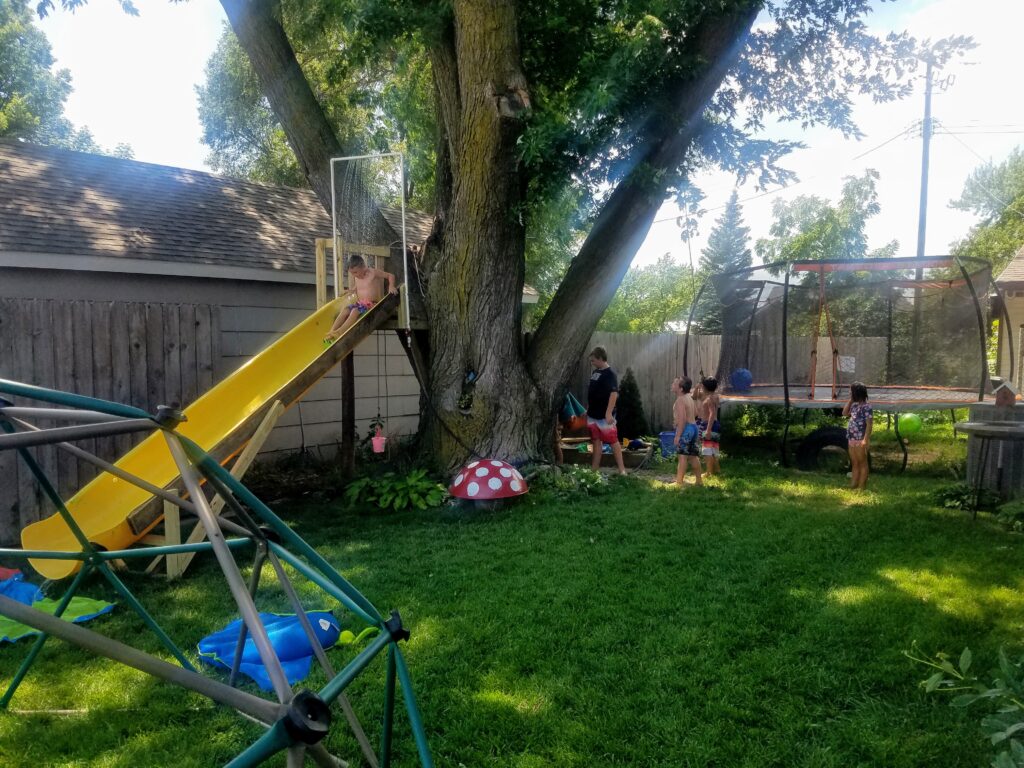
Each home gave us a tree, each tree, a blessing.
The trees around me now inspire me because of their resilient growth.
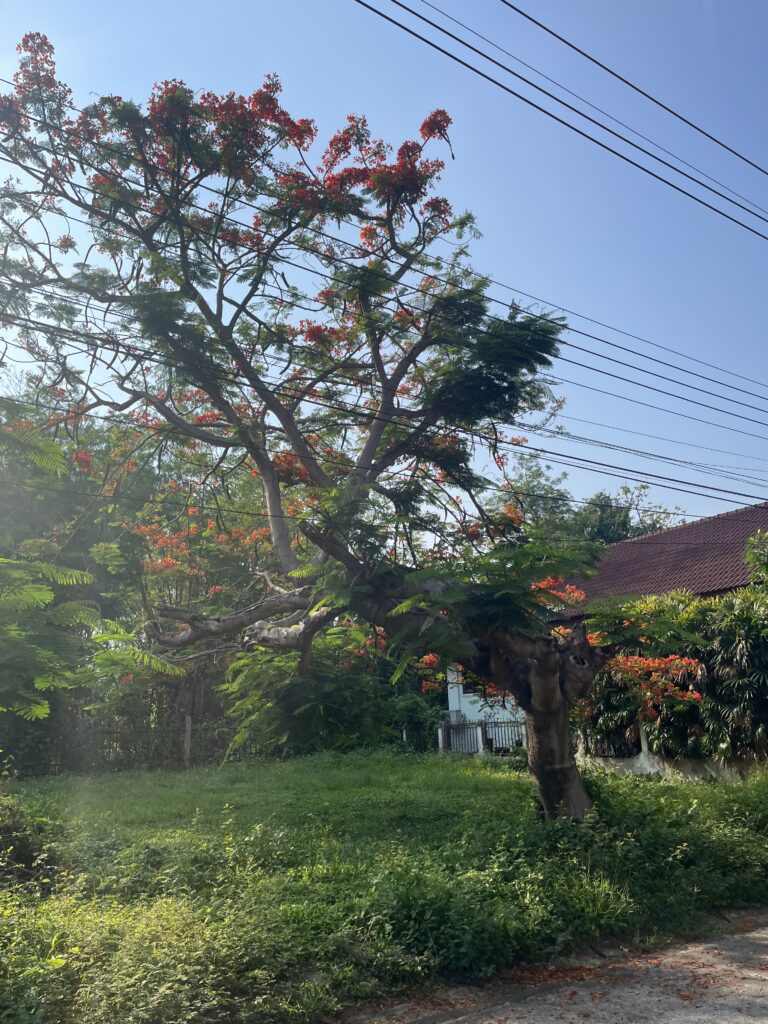
They bend, adjust: growing around power lines and avoiding snares. Always beautiful. Still blooming bright.
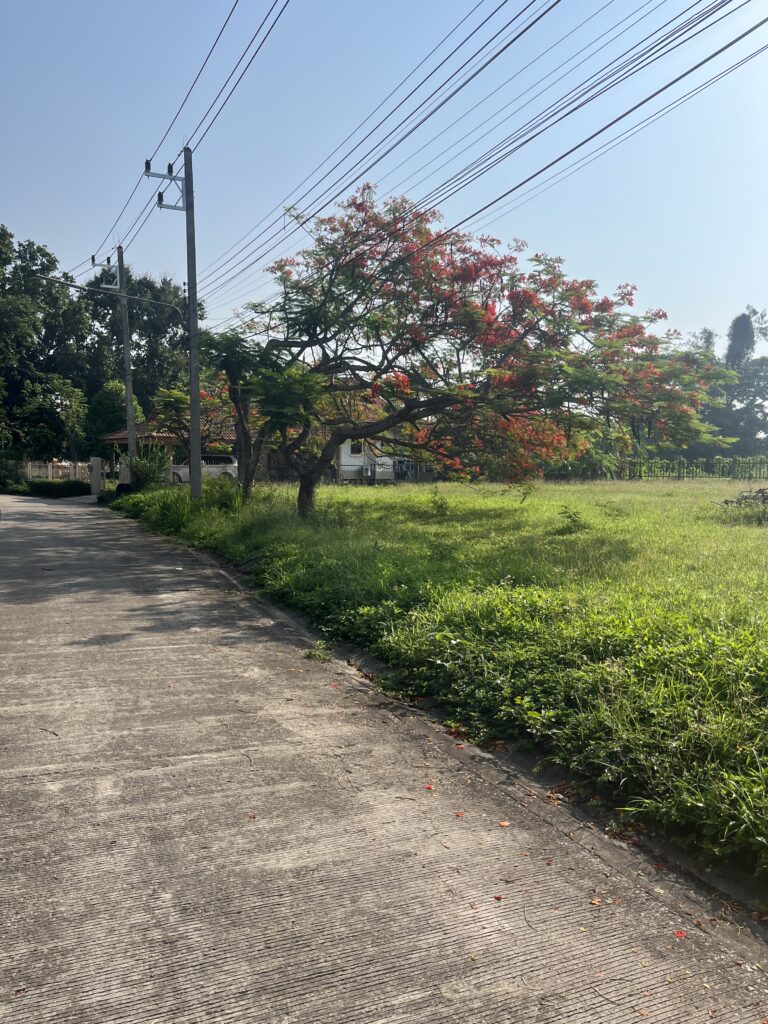
I love that these people bent their wall around the tree. And the tree, in turn, bends out from their home, leaning over the road to provide a canopy of welcome shade.
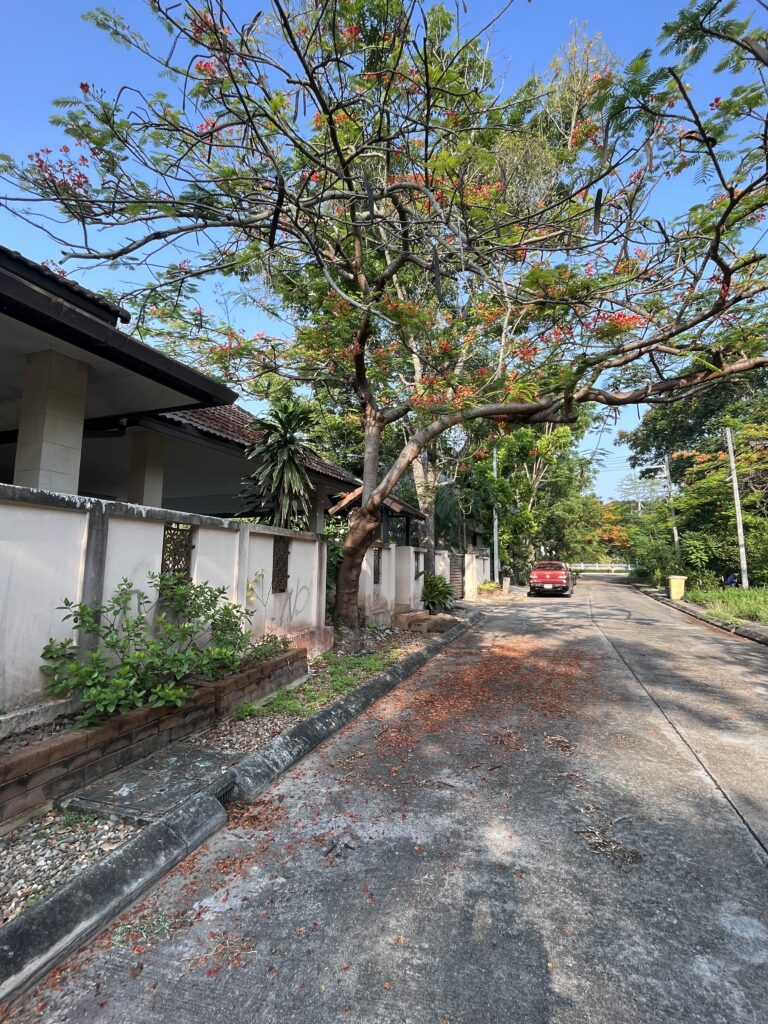
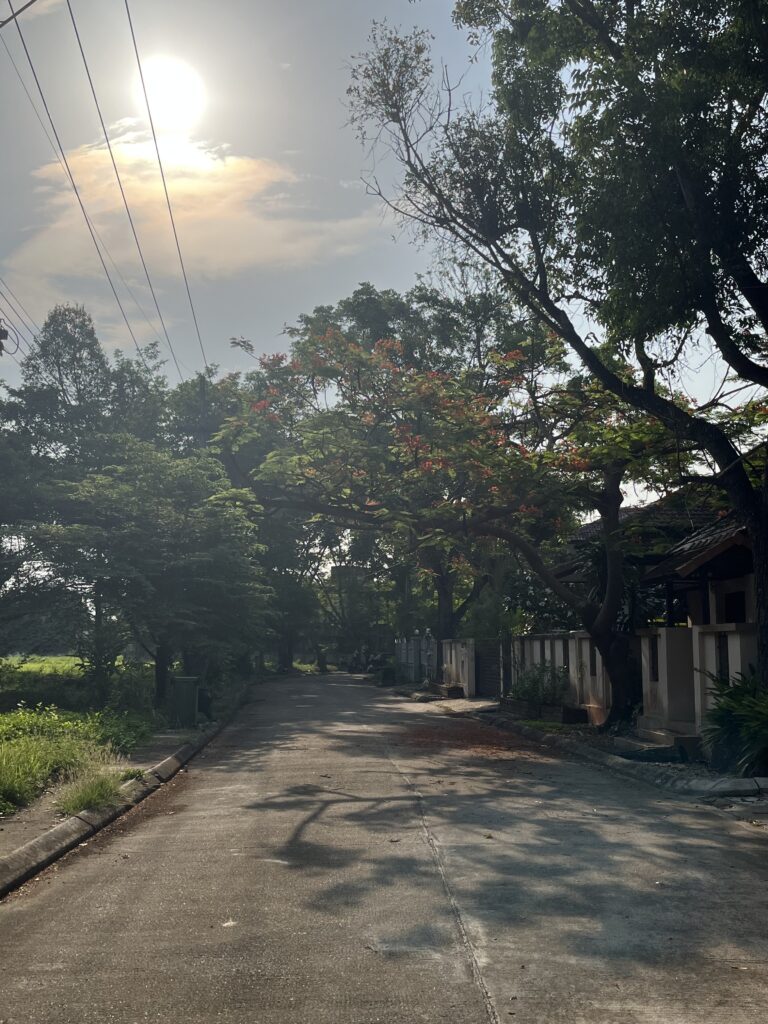
And then there is this one. While standing tall and strong, it still finds a way to lean toward the water: drawn to its refreshing stillness and abundant source of life.
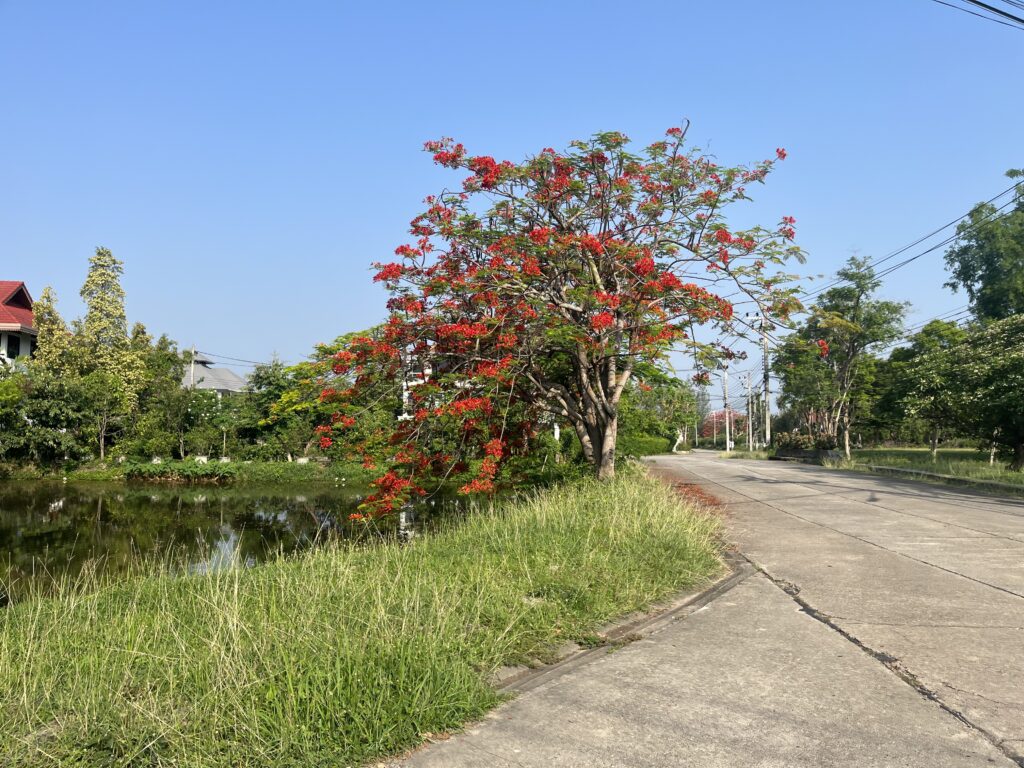
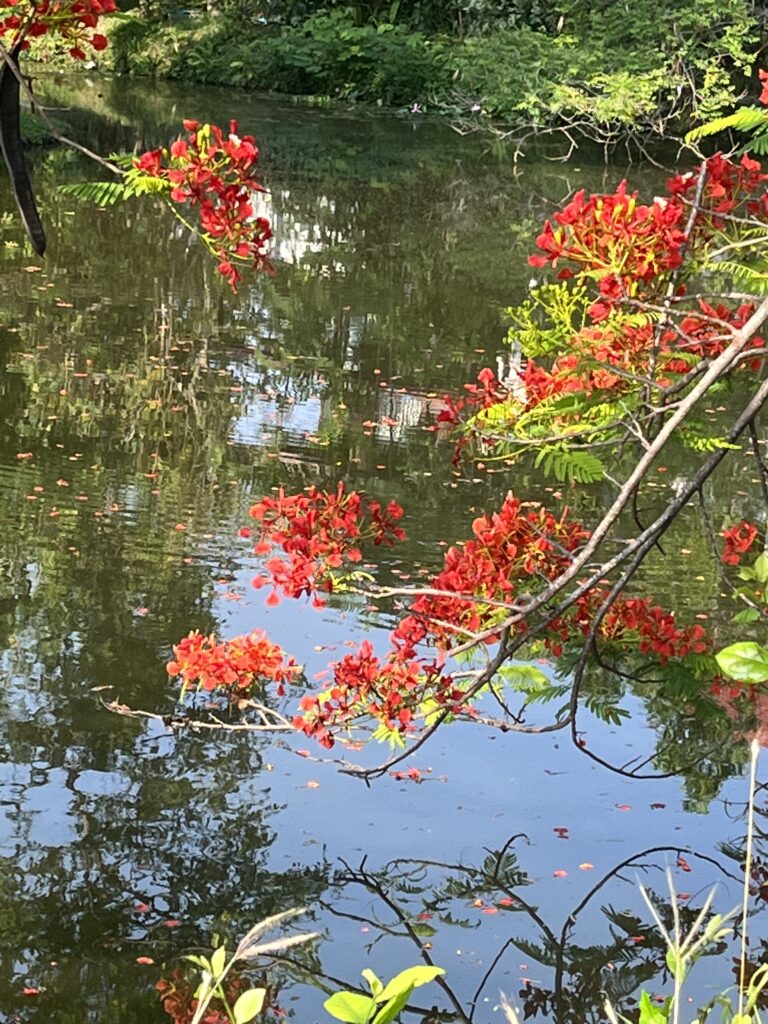
In each place I have lived, I have worked to put down roots, reaching deep and holding tight. Torn up, replanted, pruned, I admit I feel lost some days. I have been busy reaching, growing, dreaming in one direction: but if that way is cut off, I too must grow in another direction. Like these trees, I am doing the slow work of bending. Like these trees, I lean into the still waters where I find refreshment for my soul. Always, forever, finding new ways to reach up.
-
“IT COULD BE WORSE” IS NOT THE SAME AS BEING “GOOD”
It’s amazing to realize how fast I can adapt to new surroundings and at the same time fail to understand the impact of that ability. If you have been following us, you’ve likely seen us post about the air quality in Chiang Mai (like Alisha’s post from a few weeks ago: https://ourparadoxology.com/breathing-paradox/). From mid-January through late April or May, villagers in Northern Thailand, Laos, and Myanmar routinely burn the jungles, fields, ditches, and rice paddies. There’s debate as to the reason for this practice but the results are the same. Due to the mountainous terrain, lack of seasonal rainfall, and shortage of wind, the rising smoke has nowhere to go and subsequently hovers like a suffocating blanket over Chiang Mai.
Having lived on open prairies of North Central Nebraska, I never once thought about air quality. We were always breathing fresh air. “Bad air” was how we might have referred to seasonal pollen, but, even then, the pollen signified vibrant and healthy ecosystems all around us.
The Air Quality Index (AQI) has six color ranges: Green 1-50, Yellow 51-100, Orange 101-150, Red 151-200, Purple 201-300, and Maroon 301+. The air quality in Atkinson, NE, regularly hovers in single digit territory, or comfortably Green. When we stepped off the plane in Chiang Mai, the air quality was about 125 – orange. By mid-April, we had air quality readings in excess of 500. Just this week, it has dropped for the first time since we’ve lived here to below 100 – yellow. Comparatively, we now feel incredible, and yet, we are still a long way from the air quality we’re used to.
What I am learning through all of this is how easily I adjust to circumstances around me, regardless of if they are positive or negative. When adversity becomes normal, I adjust to the new normal without regard to the consequences. It is like the slow boiling frog analogy. I think It is easy to understand the metaphor of the water increasing temperature just like the air quality getting worse. Just like the proverbial frogs, I acclimate to the harsh environment around me. One might argue to be an enviable dexterity of personality. What I don’t as easily recognize is that when the environment starts to improve (the water temp drops or air quality cleans up), I become excited and thankful for the relief, but don’t even realize that the new present conditions are still worse than what I should expect or desire. A water temperature of 120 is far less than 212, but not remotely close to the temperature a frog would normally be expected to thrive in.
While it’s a skill and positive attribute having the ability to function amid turmoil, tribulation, adversity, or hardships, the danger is being content with the new normal, or adjusting to a dangerous situation that isn’t as bad as it was at its worst, but still worse than it was before the situation arose in the first place. To put it another way, a child may start off clean but when he finds an irresistible mud puddle and proceeds to cover himself head to toe, the first action is to hose him off. It’s true that he’s cleaner than he was when the mud was caked in his hair, but it’s not the same as being clean.
My spiritual journey is the same. I may not be as flagrantly bad as I once was, but that’s not the same as being as clean as I should be. My ability to adapt is not a strength when it comes to getting comfortable to the sin around me, even when I experience great relief from previous degrees of sinful bondage. I think Satan uses the skill of contentment as a weapon against improvement: I’m better than I once was, but that is not the same as being as good as I should be. It’s not an argument for effort. I can’t clean my sin away more than I can make it rain to clear the smoke. My ability to adjust easily to new situations can subsequently be a barrier preventing me from experiencing the necessary cleansing only Jesus’ blood can offer.
